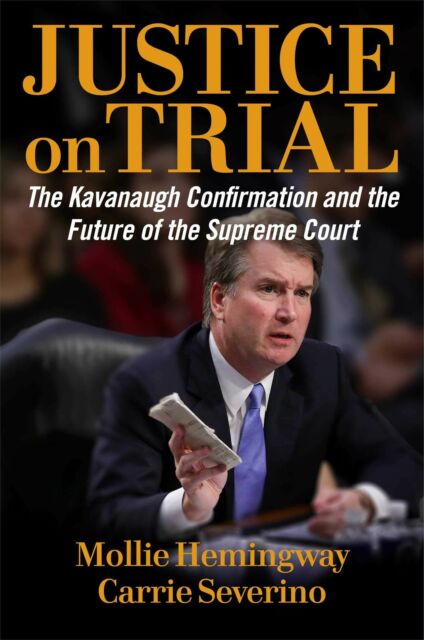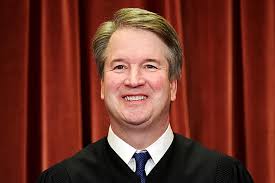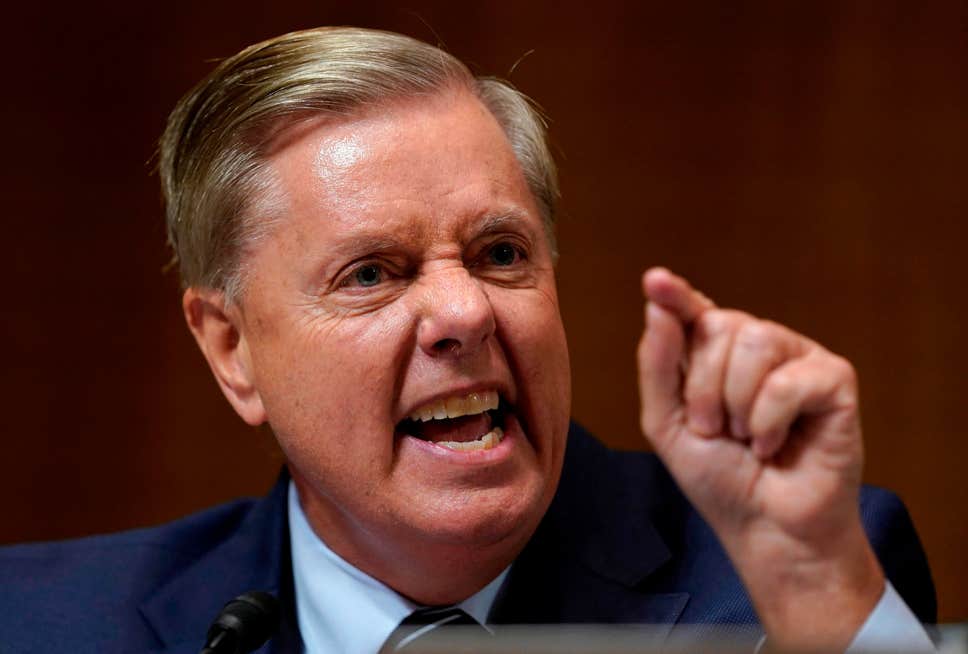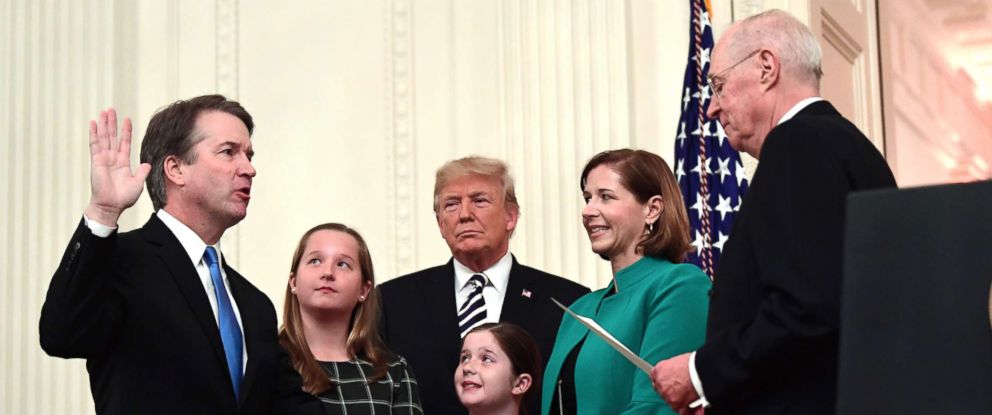Capra Meets Kafka: Political Intrigue Too Bizarre for Fiction
Once-placid judicial confirmations have become a brutal proxy for the take-no-prisoners culture war
A slightly revised version of this essay first appeared in Law & Liberty on August 2, 2019 (here). Thanks to Power Line and How Appealing!

In Justice on Trial, a devastatingly-thorough journalistic account of the Brett Kavanaugh confirmation hearings, Mollie Hemingway and Carrie Severino—both seasoned Washington hands—expose a tale of political intrigue more hair-raising than the conventions of fiction. When I was growing up in the D.C. area, a political novel based in the nation’s capital, such as Fletcher Knebel’s Seven Days in May (1962) and Allen Drury’s Advise and Consent (1959), typically featured coup attempts and similar internal treachery. Likewise, the hit 1975 movie, Three Days of the Condor, portrayed a rogue intelligence operation within the CIA. The villains were all insiders, a scenario reinforced by the real-life drama of Watergate.


Then the familiar plot line changed inside the Beltway, as a fifth column of leftist operatives emerged during the Reagan administration to influence events through well-organized external machinations. Starting with the Left’s demonization of Robert Bork during his Supreme Court confirmation hearing in 1987, and continuing with the attempted (but unsuccessful) take-down of Clarence Thomas in 1991, outside interest groups learned they could sabotage judicial nominees by “borking” them with phony charges, demagogic rhetoric, and character assassination. Their motivation is clear. Decades of judicial activism, exemplified by Roe v. Wade, have turned the U.S. Supreme Court into the nation’s most powerful political body. A majority of nine unelected (and life-tenured) justices decide policy for the entire country, making Supreme Court appointments far more important than elections themselves.
This is obviously not what the Framers intended for the “least dangerous” branch. The Senate’s “advice and consent” is not supposed to be an ad hoc referendum on hot button issues not even addressed by the Constitution, such as abortion rights and same-sex marriage. Yet here we are. As a result, confirmation hearings have become a battleground for left-wing organizations seeking to promote (and preserve) their counter-majoritarian agenda.

The forces of the anti-Trump Resistance went into a full-blown frenzy in 2018 when the President nominated Kavanaugh, a highly-respected 12-year veteran of the D.C. Circuit, to replace the pivotal Justice Anthony Kennedy—potentially tipping the balance of power on the Court. Senate minority leader Chuck Schumer immediately announced his steadfast opposition. The liberals’ bloodlust was accentuated by a desire for revenge due to the perceived slight of President Obama’s stillborn nominee for the Scalia seat, Merrick Garland, but the mob ultimately took on a life of its own. Due to sensational—but often one-sided and superficial—news coverage, most people are generally familiar with at least the highlights of the Kavanaugh story, but Justice on Trial provides a gripping blow-by-blow narrative. The details are highly disturbing—sometimes even shocking.
Spoiler alert: An exemplary candidate was defamed and vilified, on the basis of unfounded (and largely unbelievable) allegations by a variety of questionable witnesses—some of whom were comically sleazy. The openly-biased news media establishment aired the baseless charges against Kavanaugh, unfiltered, stoking a tawdry public spectacle that demeaned the Senate and would have cowed a man less resolute than an indignant Kavanaugh, backed by an unwavering President Trump. It was an ugly episode in American politics—perhaps the worst in my lifetime—combining the most disgraceful elements of the Bork and Thomas hearings. Kavanaugh squeaked through by the narrowest of margins, and only after his reputation was unfairly impugned by vicious, baseless smears.
It is important to understand precisely what happened, and at whose hand, so history can judge the malefactors responsible, and so that our institutions can make sure that this disgusting circus is never repeated. Justice on Trial is an impressive work—truly the “definitive account” of the Kavanaugh confirmation. Meticulously researched, and reflecting “background” interviews with over 100 insiders (including President Trump), the book combines superb reporting with deft pacing, putting the Kavanaugh confirmation in the larger political and historical context. The reader feels like a fly on the wall, behind the scenes, as the events dramatically unfold. Despite the authors’ right-of-center orientation, and Severino’s leadership role in the pro-Kavanaugh Judicial Crisis Network (which was formed in 2005 to counter the deep-pocketed People for the American Way), their perspective is admirably objective.
The lengthy “rogue’s gallery” in this despicable chronicle includes the extensive flotilla of progressive groups that orchestrated the unruly protests (such as the Soros-funded Center for American Progress and the shadowy Center for Popular Democracy), unethical lawyers who likely suborned perjury (not limited to Michael “Creepy Porn Lawyer” Avenatti and his client, Julie Swetnick), reckless reporters who uncritically repeated lurid smears, not matter how far-fetched, and of course the grandstanding Democrats on the Senate Judiciary Committee who shamelessly pandered to the disruptive mob—what the authors call a “left-wing fever swamp.” Readers can judge for themselves whether the much-heralded testimony of Christine Blasey Ford about an incident that allegedly occurred decades earlier—and raised at the 11th hour–was worthy of belief, but the authors make a powerful case that it was entirely fabricated. Certainly the “full story,” including a fair-minded examination of Ford’s adventurous high school years at Holton-Arms and a rigorous investigation of the details of her allegations, remains to be told.

Ford was a liberal partisan who had expressed extreme antipathy to President Trump, and who had—suspiciously–scrubbed her social media profile months before making her vague allegations against Kavanaugh public. Incredibly, the Washington Post and other media partisans presumed that Ford’s unsubstantiated story was true, rejected even the possibility of an ulterior motive on her part, and suggested that any skepticism amounted to “victim shaming” or a personal attack. Conversely, an overwhelmingly hostile media contemptuously rejected Kavanaugh’s consistent and unequivocal denial of Ford’s allegations. Hemingway and Severino aptly characterize the New York Times and the Washington Post as “the public relations arm of the anti-Kavanaugh movement.”
Despite the kid glove treatment Ford received from the Judiciary Committee, her much-hyped testimony was underwhelming. The lack of any corroboration for Ford’s allegations, numerous gaps and inconsistencies that emerged from the gentle questioning of outside counsel Rachel Mitchell (conducted awkwardly in five-minute increments), and the inherent implausibility of Ford’s account left many observers questioning her credibility—although the media (which the authors slyly refer to as “the cable news peanut gallery”) uniformly pronounced her utterly convincing. Kavanaugh turned the tide with his fiery testimony—a forensic tour de force more powerful than even Clarence Thomas’s dramatic peroration in 1991. Left-wing activists had turned the confirmation process from “advice and consent” to “search and destroy,” Kavanaugh charged. Hemingway and Severino note that Kavanaugh’s “bold defense of his life, his reputation, and of the rule of law” moved many listeners to tears.

However, it was Sen. Lindsey Graham’s electrifying questioning of Kavanaugh that “changed the entire dynamic of the day,” in the authors’ estimation, with a full-throated denunciation of the opposition as the “most unethical sham since I’ve been in politics.” Graham signaled to his fellow Republicans that the time for kowtowing to Ford and her handlers was over. The American public agreed. Frank Capra could not have crafted a more cathartic denouement. Unlike a Hollywood ending, however, the story did not conclude on that triumphant note, and a few more cliff-hanging moments awaited Kavanaugh before his fate was determined, due in part to the insistence of Arizona Senator Jeff Flake, a lame-duck NeverTrumper, that the FBI investigate the allegations against Kavanaugh before a final Senate vote. In the meantime, Rachel Mitchell shredded Ford’s flimsy story in a written report to Republican senators.
The FBI report, when it came out, contained no new revelations and actually cast doubt on Ford’s accusations—to which, the authors quip, “the media had ascribed almost biblical authority and which Kavanaugh’s defenders were terrified to attack directly.” For example, Leland Kaiser, a high school friend of Ford’s whom Ford contended was at the party where she was allegedly attacked, told the FBI that she did not know Kavanaugh and had no recollection of the incident. Despite enormous pressure, Collins ultimately voted to confirm Kavanaugh, as did Flake. The vote was 50 to 48. The Big Lie had nearly worked to defeat an exceptionally well-qualified nominee.
The story also features a number of heroes, whose qualities and efforts contributed to the favorable outcome of the hearings. These include President Trump, who chose Kavanaugh and never flinched during the ordeal; the unflappable White House counsel Don McGahn; Kavanaugh himself, credibly described in the book as “a remarkably straight arrow in and out of the courtroom”; his devout and supportive wife, Ashley; his devoted cadre of friends (many dating back to high school!) and former clerks; and principled Senators who refused to succumb to the #MeToo media frenzy, particularly Chuck Grassley, Mitch McConnell, Lindsey Graham, and Susan Collins.

At Kavanaugh’s ceremonial swearing-in at the White House, President Trump poignantly apologized to the Kavanaugh family, on behalf of the nation, “for the terrible pain and suffering you have been forced to endure. Those who step forward to serve our country deserve a fair and dignified evaluation, not a campaign of political and personal destruction based on lies and deception.” The President turned to Kavanaugh’s two young daughters and assured them that “your father is a great man. He is a man of decency, character, kindness, and courage who has devoted his life to serving his fellow citizens.”
Sadly, unless something changes, this travesty will be repeated if President Trump has occasion to appoint another justice to the Court. Given the recent trend, there may be an even more squalid sequel to this sordid tale. As Justice on Trial warns, “Compared with what might follow, the Kavanaugh confirmation might look like the good old days of civility…. The big unknown is whether America will let it happen again.”
This outstanding book is a clarion call to the nation regarding the danger of a repeat performance.
































